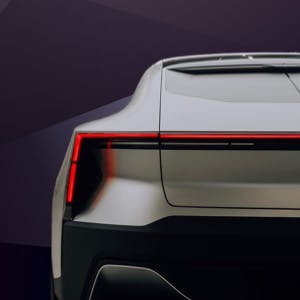- Home
- All updates
- EDGE Insights
- Industries
- Company Search
- My Watchlists (Beta)
All Updates
Apple scales back its self-driving car project “Titan”
Hexagon unveils Advanced Compensation for metal 3D printing
Eden AI raises EUR 3 million in seed funding to accelerate product development
Wiz acquires Dazz to expand cloud security remediation capabilities
Immutable partners with Altura to enhance Web3 game development and marketplace solutions
OneCell Diagnostics raises USD 16 million in Series A funding to enhance cancer diagnostics
BioLineRx and Ayrmid partner to license and commercialize APHEXDA across multiple indications
SOPHiA GENETICS announces global launch of MSK-IMPACT powered with SOPHiA DDM
Biofidelity launches Aspyre Clinical Test for lung cancer detection
Spendesk partners with Adyen to enhance SMB spend management with banking-as-a-service solution
Mews acquires Swedish RMS provider Atomize to enhance Hospitality Cloud platform

Auto Tech
Apple scales back its self-driving car project “Titan”
-
Multinational technology company Apple has reportedly scaled back its plans to enter the automotive market with a self-driving passenger vehicle–in its project dubbed “Titan.” The company initially planned to introduce a fully self-driving car by 2025–which now has been pushed back to 2026 and will not be fully autonomous either.
-
A few key personnel including the engineering executive in charge of the project have also departed the company, which also could have been a reason behind the delay.
-
Apple planned to build a self-driving car without the need for a steering wheel or pedals, but reportedly the company does not think this is achievable with the technology today. Instead, the car will have guided driving features that work on highways but will not be fully autonomous. The features include the ability to watch movies and multitask while on highways, alert the drivers when they need to switch to manual controls for city streets, etc.
-
The vehicle will come equipped with a custom array of LiDAR sensors, radars, and cameras, to deliver positioning information and lane and orientation data as required.
-
Analyst QuickTake: Today we notice continuous struggles of autonomous vehicle tech developers to bring their products to the market. In fact, peer startup Pony.ai announced an internal restructuring in November; Argo.AI closed down its operations earlier in October; and Aurora Innovation is also reportedly considering strategic actions , including the sale of the company, amid worsening market conditions. Intel’s autonomous tech development unit Mobileye also went public last month but at one-third of the valuation initially targeted. These recent developments suggest that autonomous vehicles will take a while to hit their stride.
Contact us
By using this site, you agree to allow SPEEDA Edge and our partners to use cookies for analytics and personalization. Visit our privacy policy for more information about our data collection practices.